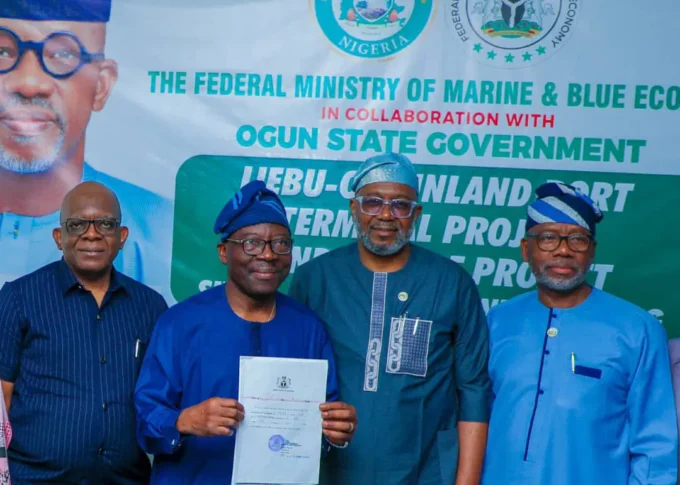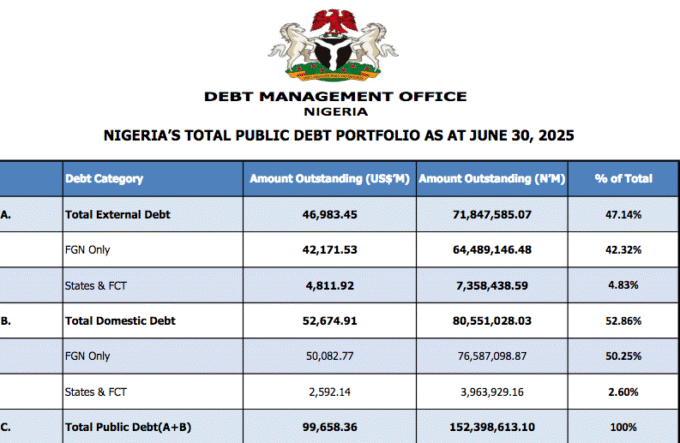By Maduka Nweke
[email protected] 08034207864, 08118879331
Although Nigerians may be battered by dizzying economic conditions, Razaq Lawal, a pioneer engineer at the National Steel Plant and a key figure at the Nigerian Building and Road Research Institute (NBRRI), insists owning a home in Nigeria does not have to remain a distant dream, but a goal within reach through well-planned strategies and community-driven initiatives.
Drawing from decades of professional experience, Lawal advocates cooperative financing, the use of blended cement materials and supportive housing policies as potent options that can make affordable homeownership a reality for many.
In his new book, Strategic Action Towards Building & Financing Your Own House: The Financing Option, he offers practical guidance, urging Nigerians to leverage local resources and collective financing models to secure homes earlier in life, free from the burden of imported building materials.
Excerpts:
Could you please summarise the strategic action towards building and financing your own house?
Housing accounts for more than 70 percent of land use in most cities, determining urban form and densities. It also provides employment and contributes to economic growth. With the “Housing at the Centre” approach, UN-Habitat seeks to reposition housing problems and opportunities in the international development agenda in a more strategic manner, especially as they relate to the future of urbanisation.
Housing has long been identified as one of the most basic human needs. However, for many people, the dream of owning a house often turns into a nightmare due to challenges faced during their first attempt—chief among them the high cost of building materials, especially cement, and the difficulty of procuring land.
Governments should continue to design housing policies that recognise the emotional and cultural significance of land. Policymakers must understand that their decisions go beyond brick-and-mortar solutions—they must create frameworks that allow citizens to forge meaningful connections with their environment.
It is imperative for governments, particularly in developing countries, to provide a supportive environment for young people. By addressing issues such as land tenure security, access to financing, and streamlined processes for acquiring building permits, authorities can lay the groundwork for future generations to realise their dreams.
Platforms that encourage community participation in housing initiatives, especially through local government structures, can empower individuals to take ownership of their environment. This also allows them to utilise the advantages inherent in cooperative financing for housing development.
Many success stories on housing cooperatives exist across the world, in the UK, USA, and Canada. These narratives show that individuals can take their future into their own hands regarding homeownership through access to cooperative financing by joining cooperative societies within their communities.
Coincidentally, this year marks the International Year of Cooperatives 2025 in Manchester, UK, the 130th Anniversary of the Cooperative Society, under the theme: Cooperatives Build a Better World Together. My book resonates with and supports some of the ideas contained in the second draft of the International Cooperative Alliance’s Strategic Action Plan (2025–2029), which also enjoys UN backing.
What inspired you to write the book?
The inspiration came during my service year in 1981/82 with the then National Steel Development Authority, Jos Steel Plant. I realised that people were living in very poor housing conditions, especially in urban centres. Some were unable to afford rent, while others lived in overcrowded spaces.
I began to reflect on possible solutions, and over time, with my professional experience and exposure, I saw that cooperative housing—supported by strategic planning and financing models—could provide a sustainable pathway for people to own decent homes.
My interactions with colleagues, communities, and later international housing models, further convinced me that Nigerians have no reason to suffer housing deficits when we have the resources, manpower, and technology to solve the problem locally. That conviction formed the backbone of my book.
Can you explain how the Oakwood Housing Cooperative Society Limited works?
Oakwood Housing Cooperative Society Limited is a practical demonstration of the ideas I advocate. It is designed to bring people together under a cooperative framework to pool resources, access land collectively, and construct homes in phases.
The cooperative system operates on the principle of strength in numbers. Members contribute financially and, in return, benefit from shared equity and access to affordable housing. This reduces the burden on individuals while creating a supportive community environment.
Globally, cooperative housing has been tested and proven successful. What we are doing with Oakwood is simply adapting those principles to Nigeria’s realities, ensuring affordability, transparency, and inclusiveness.
You have also spoken about Pozzolana cement material. What role does it play in affordable housing?
Pozzolana is a natural material that, when blended with cement, reduces the overall cost of construction while maintaining strength and durability. It has been used in many countries to great effect.
In Nigeria, we are blessed with abundant Pozzolana deposits. By using it to partially replace expensive Portland cement, we can significantly cut costs and promote local content. This makes housing more affordable without compromising quality.
NBRRI, during my time there, did significant research on Pozzolana and even established a pilot plant to demonstrate its production. Unfortunately, the findings were not fully adopted on a large scale. If mainstreamed, Pozzolana could transform the housing sector by reducing dependence on imported cement and lowering construction costs.
From your perspective, what role should NBRRI be playing in Nigeria today?
NBRRI was established to provide research-based solutions to Nigeria’s building and road challenges. Its role should go beyond laboratory experiments; it should be at the forefront of translating research into practical, market-ready innovations.
For instance, the institute can actively promote the use of alternative building materials, such as stabilised earth blocks and Pozzolana cement, while working with local and state governments to drive adoption.
NBRRI should also strengthen collaborations with universities, private developers, and international partners. By becoming a hub for innovation, the institute can not only support affordable housing but also create jobs and stimulate local industries.
Finally, how do you see the future of housing and real estate in Nigeria?
The future is both challenging and promising. On one hand, the population is growing rapidly, and urbanisation is placing enormous pressure on existing housing stock. On the other hand, technology, cooperative models, and local materials present real opportunities.
If we can get the policies right—securing land tenure, improving mortgage systems, encouraging housing cooperatives, and promoting research-based building materials—Nigeria can move from a housing deficit to a housing surplus.
The real estate sector has the potential to drive economic growth, create employment, and improve quality of life. With a strategic approach, Nigeria’s housing future can indeed be transformed for the better.
Where do you think Nigeria’s real estate is headed?
Real estate in Nigeria is vibrant in some cities like Lagos and Abuja. Here is a prediction of real estate in Nigeria in 2025. As we step further into 2025, Nigeria’s real estate market is poised for significant transformation, shaped by evolving economic conditions, shifting demographics, and emerging technologies. Despite challenges like inflationary pressures and currency fluctuations, the sector shows resilience, with opportunities arising in affordable housing, urban redevelopment, and green building initiatives. This year promises to be a turning point for the industry, with exciting prospects and critical changes that could redefine the future of real estate in Nigeria. Curious about what’s next for Nigeria’s real estate market? Continue reading to discover key highlights and expert predictions for the year, including insights into market trends, investment opportunities, and the evolving role of technology in shaping the industry’s future.
Market overview
Since the removal of the fuel subsidy during President Bola Ahmed Tinubu’s May 2023 inauguration speech, Nigeria has seen a rise in fuel prices. This surge has escalated transportation and construction costs, driving up the price of building materials. Alongside rising inflation (33%) and an increased Monetary Policy Rate (MPR), these factors have made housing less affordable. Nigeria’s real estate sector faces high construction costs and limited mortgage access, further complicated by a housing deficit of over 22 million units. Despite these issues, the Nigerian real estate market is set to grow to an estimated US$2.61 trillion by 2025, with residential real estate holding the largest share—projected market volume of US$2.25 trillion—driven by rapid urbanization and a growing demand for housing at approximately 4.3% annually, with cities like Lagos, Abuja, and Port Harcourt experiencing significant influxes. This trend intensifies demand for residential and commercial properties. However, supply is expected to lag behind demand, highlighting the need for scalable affordable housing solutions. Proptech innovations, public-private partnerships, urban renewal projects, and diaspora investments present significant growth avenues, potentially bridging the housing gap and enhancing market accessibility.
Housing demand
Housing demand in Nigeria is projected to grow by 8% annually, reaching 30 million units by the end of 2025. This surge is driven by a combination of factors, including a 2.5% annual population growth rate, rapid urban migration, and a youthful demographic with increasing household formation rates. As the population expands and more individuals migrate to urban areas, the need for housing continues to rise, putting pressure on the existing housing infrastructure.
On the supply side, housing is expected to grow at a slower pace of 5% annually, constrained by challenges in financing and limited construction capacity. However, the Renewed Hope Cities and Estates Programme is playing a significant role in addressing this issue. The programme aims to deliver over 20,000 housing units annually. According to the Minister of Housing and Urban Development, Mr. Ahmed Musa Dangiwa, by year-end, 10,112 units will already be under construction across 14 sites nationwide. This initiative targets various income levels with flexible options such as Rent-to-Own schemes and instalment payments, providing a much-needed boost to the sector.
Pricing trends
Pricing trends in the real estate market are also set to shift significantly, with prices in urban centres like Lagos and Abuja forecasted to rise by 10–12% annually. This increase is largely due to the limited availability of land and the heightened demand in these areas. Inflation, coupled with interest rates expected to stabilize at around 15% by 2025, and the rising costs of construction materials, will play a crucial role in shaping these pricing trends. As a result, affordability will remain a critical concern for both developers and prospective homeowners.
Survey findings
The Nigerian housing market is experiencing significant growth driven by urbanization, economic opportunities, and population increase. The demand for housing continues to outpace supply, leading to rising property prices. Real estate prices in urban centres like Lagos, Abuja, and Port Harcourt are expected to rise by 8–15% annually. Affordable housing in suburban areas such as Ibeju-Lekki and Epe is in high demand. Key developments like Eko Atlantic City and the Lekki Free Trade Zone are crucial to this growth. Second-tier cities like Ibadan, Abeokuta, Kano, Kaduna, Uyo, Calabar, and Warri are emerging as promising investment hubs due to improving infrastructure and affordability. These cities present lower entry barriers and substantial long-term returns for strategic investors.
Urbanisation and population growth will continue to drive housing demand, outpacing supply in the short term. Price increases in urban areas will challenge affordability, particularly for low- and middle-income households. Regional variations highlight the importance of localized strategies to address unique market dynamics. Despite a promising outlook, investors must navigate 2025 with caution, prioritizing thorough due diligence to avoid risks like building demolitions. Ensuring proper approval permits from the Ministry of Physical Planning and compliance with regional planning standards is critical. Rising rent defaults in residential and commercial buildings also call for robust tenant screening. For investors, the focus should be on affordable housing developments in emerging suburbs and investing in proptech solutions to streamline property management. Policymakers should implement land reforms and incentivize affordable housing projects to bridge the supply gap. Stakeholders must collaborate on public-private partnerships to scale infrastructure development and enhance housing accessibility. By focusing on compliance, strategic planning, and investments in high-growth regions, investors can minimize risks and maximise returns.
Do you support monthly rent payment?
Yes, I do. Monthly rent payments will make housing more accessible for low- and middle-income earners who find it difficult to pay one or two years’ rent upfront. However, for this to work effectively, a proper rent collection system must be in place to ensure landlords are protected against defaults. Policies encouraging monthly rent will also reduce the burden on tenants and promote affordability.
How do you see Nigeria’s housing deficit being reduced?
Nigeria’s housing deficit can be reduced through strategic investment in affordable housing, government-backed financing schemes, and stronger public-private partnerships. By leveraging local building materials, adopting modular construction methods, and streamlining approval processes, costs can be cut and housing delivery accelerated. More importantly, access to long-term and affordable mortgage financing must be improved.
What role should government play in ensuring affordable housing?
The government must focus on creating an enabling environment for developers and investors by providing infrastructure, subsidizing mortgage interest rates, reforming land acquisition processes, and offering incentives for affordable housing projects. Stronger enforcement of building codes and urban planning regulations will also enhance housing quality and sustainability.
What advice do you have for prospective homeowners and investors?
Prospective homeowners should consider emerging suburbs where land is cheaper and infrastructure development is expanding. They should also explore cooperative housing models, mortgage options, and government-backed schemes to make ownership easier. For investors, Nigeria’s real estate sector remains lucrative, especially in affordable housing, commercial real estate, and emerging cities outside Lagos and Abuja. Proper due diligence, compliance with regulations, and long-term strategies are key to maximising returns.


















Leave a comment